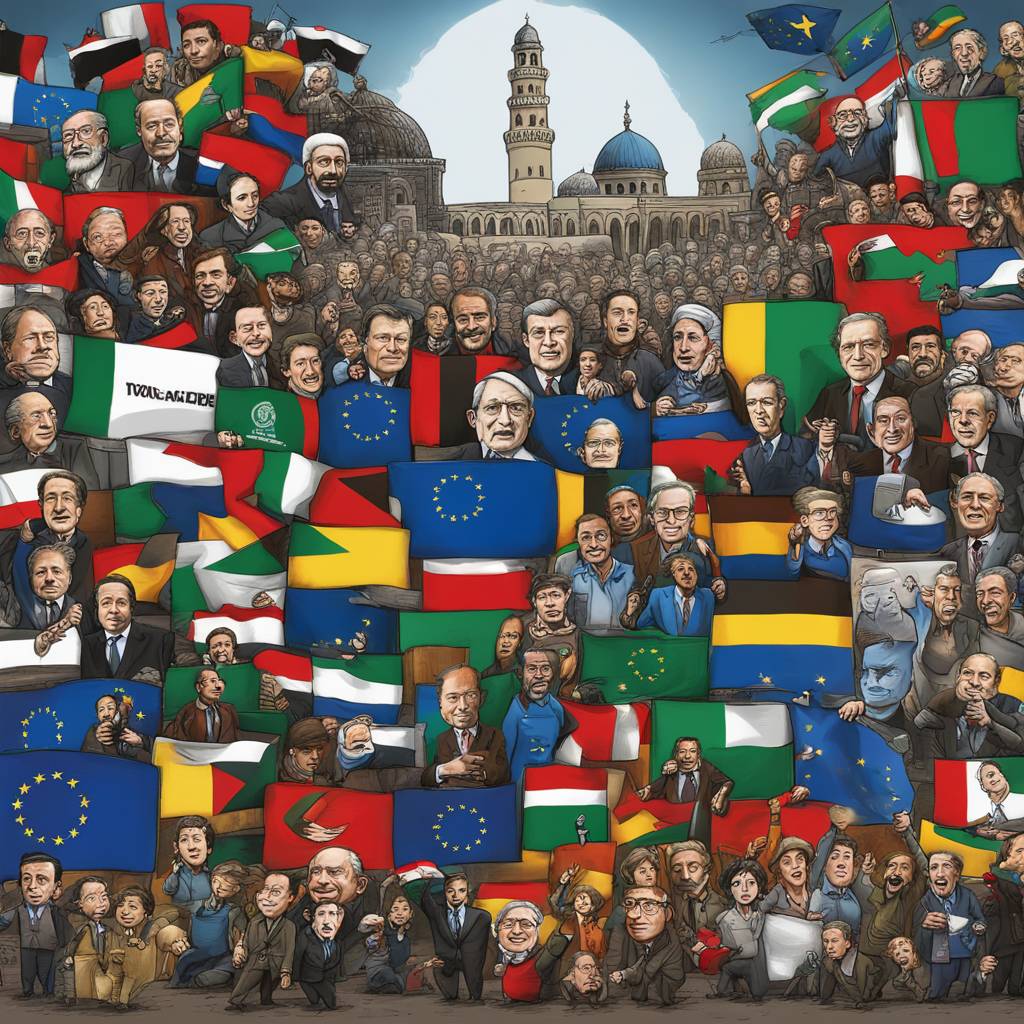European Union leaders have unanimously called for an immediate humanitarian pause leading to a sustainable ceasefire in Gaza, marking a breakthrough following months of deep divisions. The leaders came together to address the catastrophic humanitarian situation in Gaza, emphasizing the disproportionate effect on civilians and the famine caused by insufficient aid entry. European Commission President Ursula von der Leyen stressed the importance of both Israel’s right to defend itself and the duty to protect civilian life, urging Israel to allow for a surge in humanitarian aid to enter Gaza.
The EU’s call for a ceasefire aligns with the stance of its trans-Atlantic ally, the United States, as US Secretary of State Antony Blinken announced plans to push for an immediate ceasefire tied to the release of hostages at the UN Security Council. The EU also urged Israel not to proceed with its planned invasion of the southern Gazan town of Rafah and to abide by the International Court of Justice’s order to prevent genocide in Gaza. European leaders expressed deep concern over the humanitarian situation in Gaza and emphasized the need for additional land crossings to deliver life-saving aid, calling for the opening of a new maritime corridor linking Cyprus with Gaza.
The EU leaders also condemned the reports of sexual violence committed by Hamas militants during the October 7th attacks and called for the acceleration of work on the adoption of further sanctions against Hamas. The importance of releasing the remaining Israeli hostages held in Gaza was also emphasized. European Council President Charles Michel and European Commission President Ursula von der Leyen reiterated the bloc’s support for a peaceful resolution to the conflict, highlighting the need for Palestinian statehood. The EU expressed readiness to support the Palestinian Authority and revive a political process to restore peace in the region.
In response to the escalating humanitarian crisis in Gaza, the EU emphasized the urgency of addressing the famine and ensuring that aid reaches vulnerable populations. Initiatives such as the Amalthea maritime corridor linking Cyprus with Gaza have received EU backing, but leaders stressed that such efforts cannot replace access to aid by land. The EU warned of the critical situation in Gaza, with pockets of famine already emerging and the potential for hundreds of thousands to fall into famine by May. The international community has been urged to take action to address the dire circumstances faced by the people of Gaza.
The EU’s coordinated effort to address the humanitarian crisis in Gaza reflects a significant shift in its approach to the Israel-Hamas conflict. The bloc has moved towards a unified stance calling for a ceasefire and increased humanitarian aid, aligning with calls from key member states and the US. The EU’s commitment to supporting the Palestinian Authority and working towards a peaceful resolution underscores the importance of international cooperation in addressing the complex challenges facing the region. As leaders continue to advocate for an immediate ceasefire and sustainable peace, the focus remains on alleviating the suffering of civilians in Gaza and working towards a lasting resolution to the conflict.













